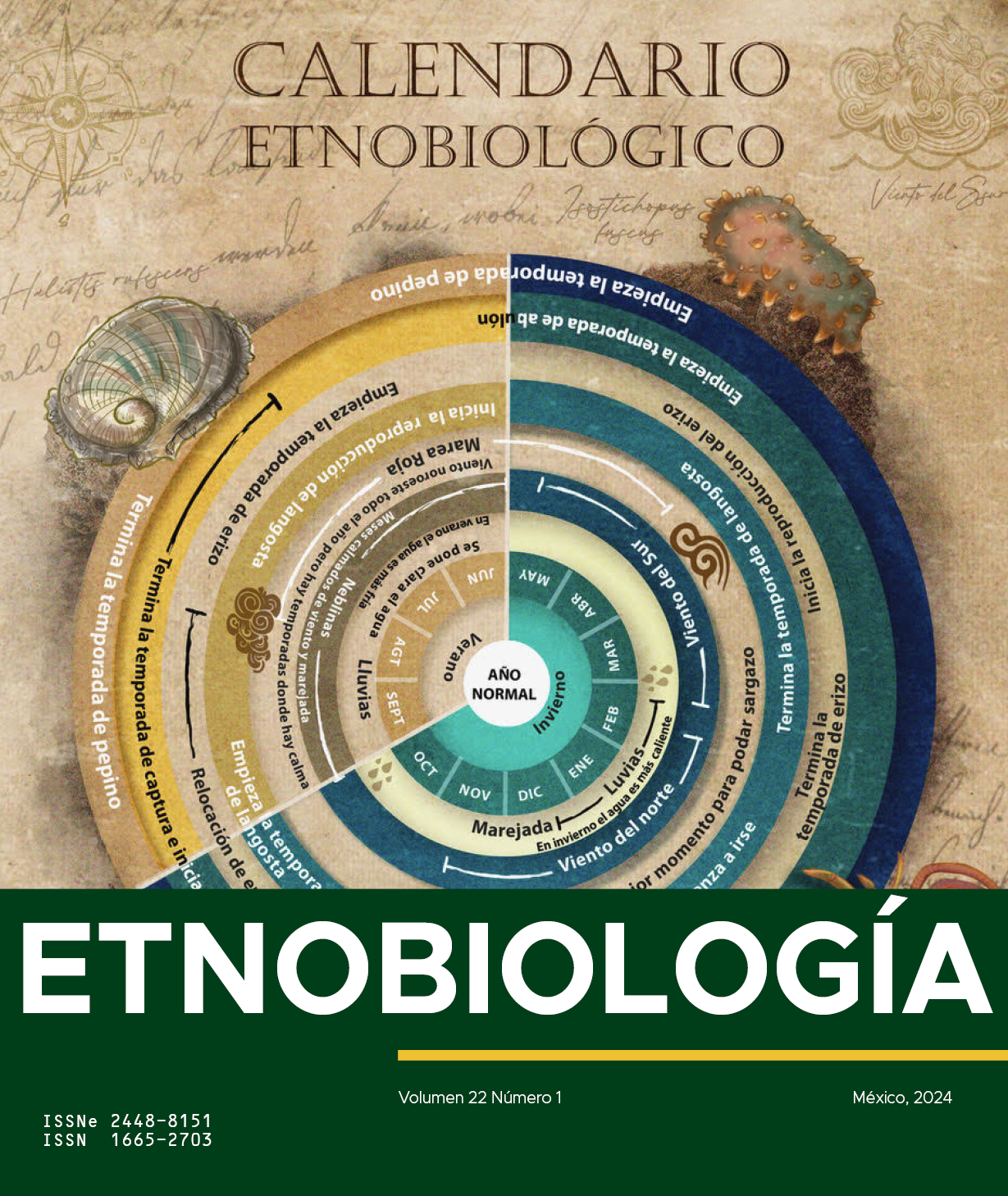CYCLIC MEASURING OF BIOTIC RESOURCES: A METHODOLOGY FOR THE RECONSTRUCTION OF ETHNOBIOLOGICAL CALENDARS
Abstract
Throughout human history, calendars have been a universal constant in all societies, providing a sense of continuity and connection with the environment. Their importance lies in their crucial role in social organization, decision-making in the management of biological resources, and survival. Despite their vitality in these areas, there is a theoretical and methodological gap in the reconstruction and detailed understanding of local calendars in ethnobiological studies. In this article, we present a methodological approach to address this gap, supported by empirical data from our research. The primary purpose of this methodology is to preserve local ecological knowledge and promote food sovereignty, as well as sustainable and ecologically responsible use of biotic resources. This methodology is applicable in both aquatic and terrestrial environments, providing a comprehensive tool for understanding and preserving the complex interactions between human societies and their surroundings. Our goal is to provide the audience with a clear and replicable methodology for recording ethnobiological calendars. This methodology is part of a larger project that, at the request of some fishing cooperatives in the Mexican Northwest Pacific, seeks to promote adaptation and resilience to climate, social, market, and political change in coastal communities worldwide. The calendar is a key component in building a scalable model for participatory knowledge co-production and its application in marine and coastal management and adaptation.


